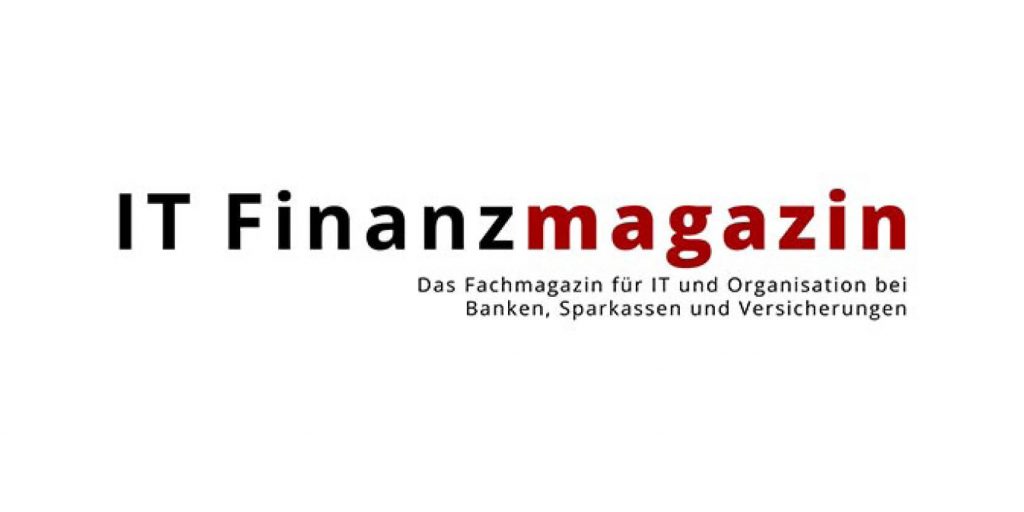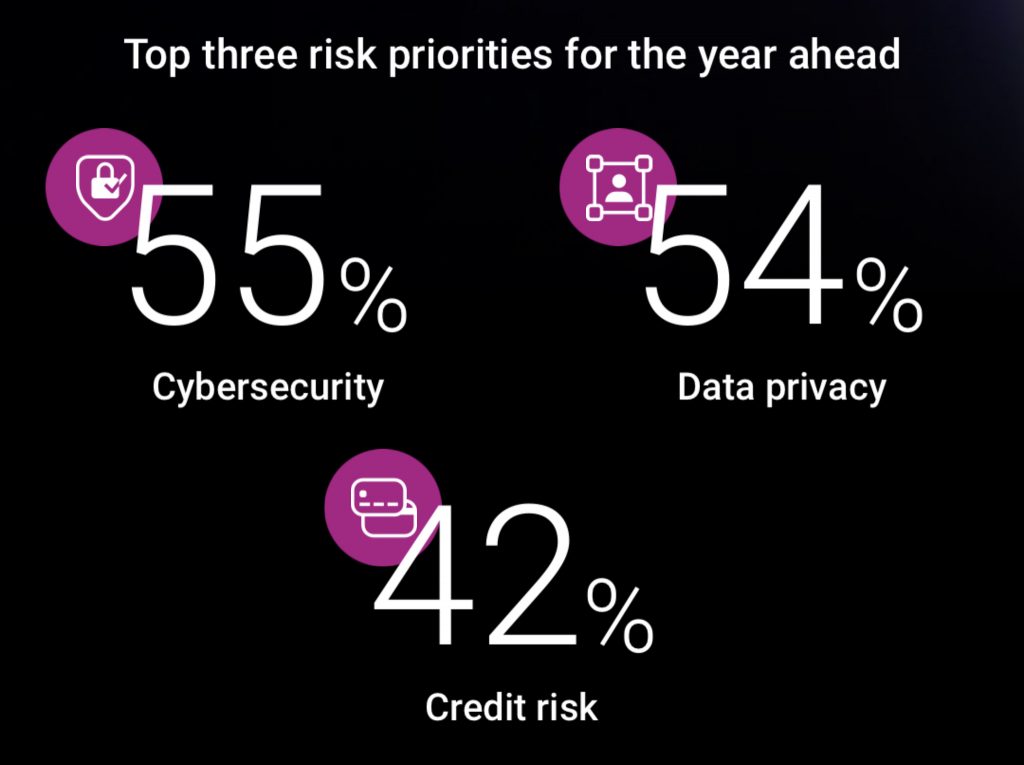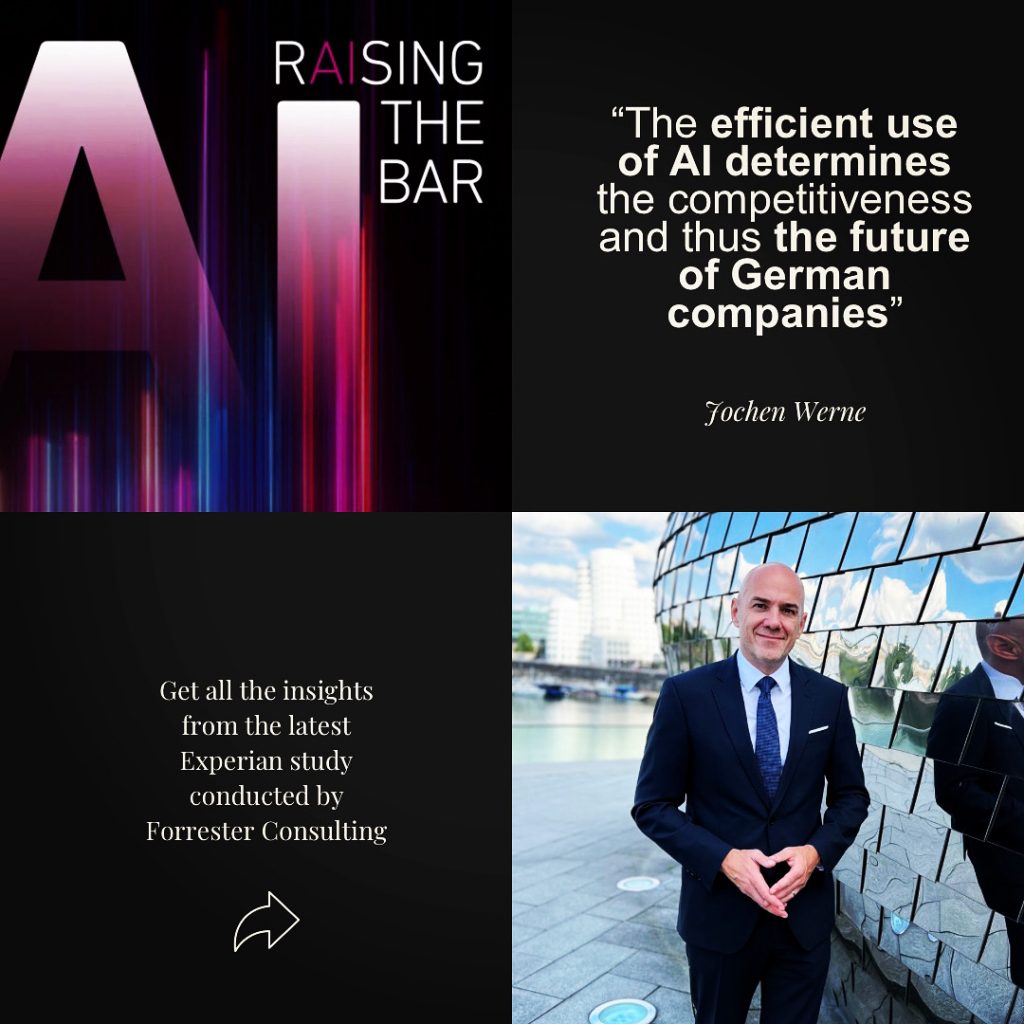Original published in German by IT Finanzmagazin – find here. Translation provided by DeepL.com. Photos provided by Pixabay, Experian, Jochen Werne. Collage design by Canva

STRATEGY 23 January 2024
EBA deadline of 30 June: data quality will be decisive in the assessment of credit risks
Financial institutions are facing a significant change in the assessment of credit risks this year. Now comes 30 June: the deadline for new standards in credit risk assessment. Jochen Werne (CEO Experian DACH) is convinced that data quality will become the kingmaker in the credit risk market.
by Jochen Werne, CEO Experian DACH

Since 2021, financial service providers have been required to implement the supervisory priorities of the ECB and EBA. These priorities include the comprehensive improvement of credit risk management practices and the integration of new risk factors, particularly in the area of climate and the environment, into their risk management strategies. At the same time, the requirements for data management in the context of credit scoring are increasing. Artificial intelligence (AI) will play a key role here and banks will have to adapt to the new EU AI Act.
“By the deadline of 30 June 2024, large banks must have adapted their systems and infrastructures in accordance with the EBA Loan Origination and Monitoring Guidelines (EBA-GL LOM) for effective credit risk management and monitoring.”
This also includes closing data gaps. However, smaller, nationally supervised financial institutions must now also comply with these new guidelines, as additional elements of the 7th MaRisk amendment came into force on 1 January 2024, which are based on the EBA guidelines, among other things. Financial organisations must review their existing practices in 2024 and adapt their credit risk assessment standards accordingly. In future, credit assessment models will have to take much greater account of transparency, fairness and sustainability, particularly from an ESG perspective. The game changer for this is increasing their data quality.
All of this leads to five important changes:
1. Profitability strategies in a challenging market environment
In view of the weak economic momentum, the expected increase in non-performing loans and challenging margin developments, financial institutions must develop new growth strategies.
“Investments in technologies such as generative AI and forward-looking risk management are becoming increasingly important.”
Advanced data analytics support organisations in various phases of their customer lifecycle. Already in the application phase, high data quality enables a more efficient assessment of creditworthiness. In portfolio management, advanced data analysis helps to proactively manage risks and dynamically manage the credit portfolio. Advanced analytics and high data quality help to strengthen resilience to risks, including data-based early risk identification and an optimised dunning and collection process.

2. Digitalisation for resilience, including against novel risks
“Over the next 12 months, strengthening business resilience through automation and digitalisation will be key to responding to new risks such as AI, cyber threats and geopolitical tensions.”
These challenges not only affect the target customer landscape, but are also of great importance in the context of new ESG requirements. Due to their complexity and innovative nature, traditional approaches based on historical data cannot cope with these risks: Traditional approaches to data analysis and model preservation increasingly have to deal with slow regulatory processes on the one hand and a more dynamic macroeconomic environment and growing cyber risks on the other. In order to cope with this competitive situation, new strategies in the utilisation of all relevant data are urgently required, which place advanced analytics and the improvement of data quality at the centre.

3. PSD3, PSR and FIDA: Banks between risk and opportunity
Since the end of 2023, the EU Commission has been aiming to drive forward the “Consent Driven Economy” with new regulations such as PSD3 (Third Payment Services Directive), PSR (Payment Services Regulations) and FIDA (Access and Use of Financial Data) and to give consumers more opportunities to use the data available about them.”
As one of the players with the greatest wealth of data, this presents banks with a high risk in the face of new competitors. At the same time, however, it also offers them an opportunity to become a trusted partner for consumers. These regulations, which focus on the promotion of open banking services, greater control of data access and measures against online fraud, represent a starting point for financial institutions to think about the further use of transaction data. In addition to combating fraud, advanced analytics of transaction data, even taking into account all compliance requirements, opens up additional opportunities for interaction with end customers to improve the customer experience or the chance to monetise data.

4. Growth driver EU AI Act
“The EU AI Act will have a significant impact on the use of AI in the financial sector and further strengthen the financial sector’s technology focus.”
AI and machine learning (ML) will further automate decision-making processes in the future and strategic investments in this area will therefore become even more crucial for growth in the future. According to a study by Forrester Consulting commissioned by Experian, 60 per cent of German companies already take a similar view and have a comprehensive AI-based risk management programme in place. By using these technologies, credit and fraud risks can be assessed more precisely and efficiently, even in uncertain economic times. Companies that implement these developments are positioning themselves as pioneers in a rapidly developing, technology-driven financial sector: 78 per cent of the companies surveyed in the study in Germany also state that they are prioritising the use of further AI and ML applications.

5. Continuation of cloud migration in the financial world
“The ongoing implementation of continuous development and continuous improvement, particularly in the areas of business, analytics and IT, is becoming increasingly important.”
This includes identifying core business processes that will benefit significantly from cloud migration and defining clear priorities and objectives for the migration process. Cloud-based data analytics plays a central role in gaining valuable insights from customer behaviour, market trends and operational data to improve business processes and make more informed decisions.

—————————-
About the author: Jochen Werne has been CEO DACH at Experian since August 2023. Previously, he served as Managing Director at Prosegur Crypto and as Chief Development & Chief Visionary Officer at Prosegur, where he was responsible for the development and implementation of strategies in the areas of business development, innovation and international sales. Werne’s career includes significant leadership positions at Bankhaus August Lenz & Co. AG, Mediolanum Banking Group, where he served as Director and Authorised Representative and was instrumental in the company’s digital business transformation. His academic career includes a FinTech programme at the University of Oxford (2017-2018) and a Diploma in International Banking at Goethe University Frankfurt (1997-2000).




